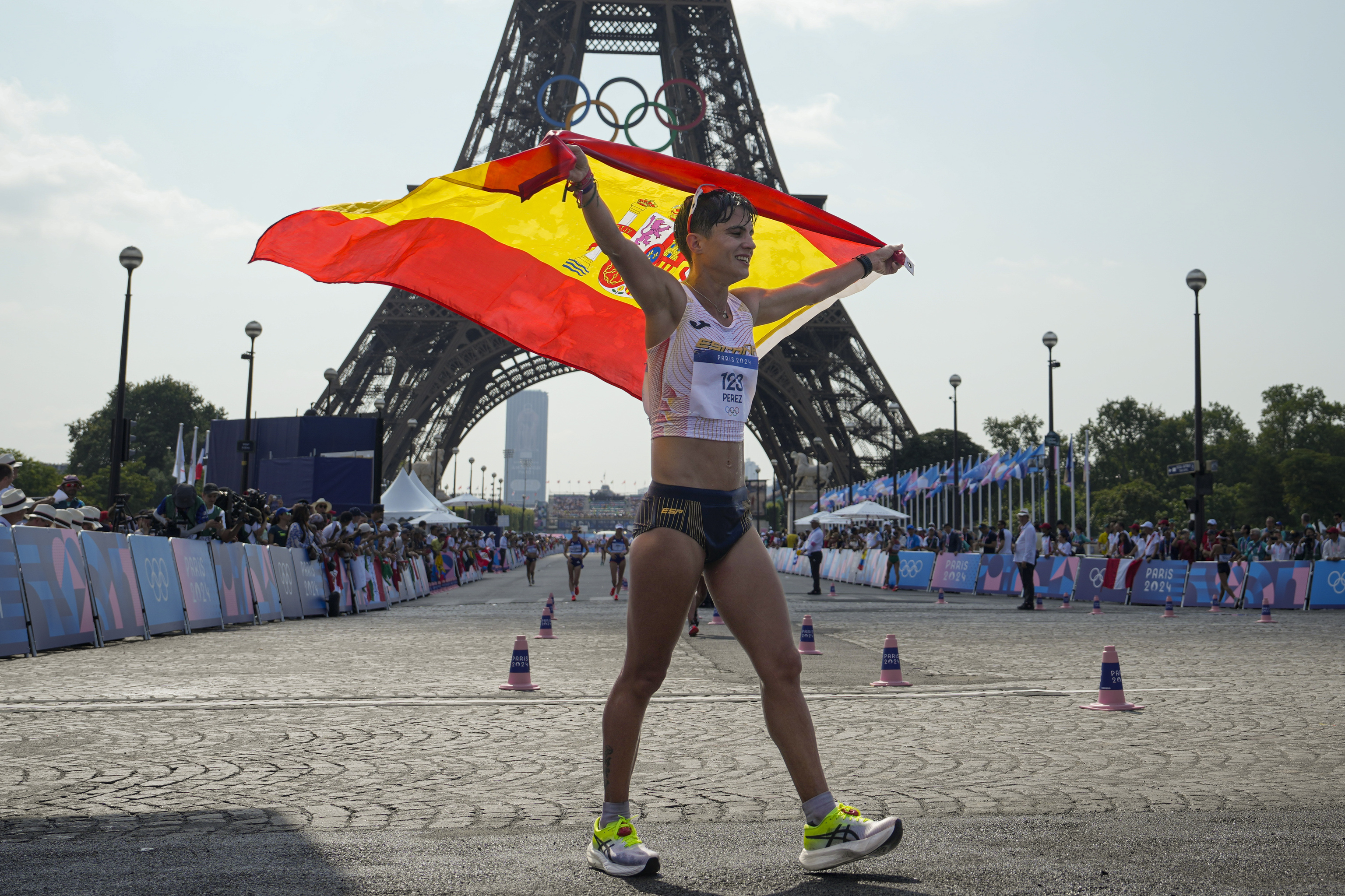"The only track and field specialty that incorporates the subjective value of a judge's opinion on technique remains race walking," says Olympic athlete Diego García Carrera, determined to promote a specialty that has been belittled and doubted, a permanent refuge and cliché for those inclined to mistrust, in the controversy of 'that one is running'. And what better than technology. And what better than the test driven by the Madrid racewalker, sixth in Tokyo 2020, in the heart of his city. At the International Grand Prix Madrid Race Walking Silbo Telecom, which will celebrate its fourth edition this Sunday, not only will the world's best be present; also the chip that aims to change everything.
The Race Walking Electronic Control System, or race walking VAR, is a laboratory product. A small device weighing less than 15 grams, attached to the shoelaces, detects what the human eye cannot: if an athlete loses contact with the ground in their stride and therefore should receive a warning from the judge. "An objective technology that does not depend on the judges' criteria. A more equitable system for race walkers," points out its ideologist, Javier Rosell, a researcher in Biomechanical Engineering and professor at the Department of Electronic Engineering of the Polytechnic University of Catalonia (UPC).
This is not Rosell's first attempt, although it seems to be the definitive one. This Sunday in Madrid, it will finally be tested "in parallel with the decisions of the official judges." A decade ago, they were already applying the use of an intelligent insole that detected if a participant's walking was irregular. But the project was interrupted by the pandemic and the logistical complexity of introducing insoles into the walkers' shoes.
The RWECS does not have that problem, and that is why they hope that World Athletics will eventually adopt it. For this, the Madrid Grand Prix, a World Race Walking Tour event, will be crucial. "Afterwards, an anonymous report will be made to avoid influencing future participation of race walkers in other competitions," says Rosell, whose device is based on a series of sensors capable of providing a number indicating the time of loss of contact of both feet, which normally ranges from 0.002 to 0.004 seconds, imperceptible to the human eye. "The system detects when the toe stops touching the ground and when the heel impacts the ground, what we call 'time in the air of each foot.' From there, we detect the loss of contact with the ground," explains the researcher.
Precisely because of those controversial 'flights' that, among other things, have cast doubt on traditional race walking. "In race walking, we can be disqualified for not extending the advancing leg (at ground contact, it must be extended 180°) or for losing contact with both feet on the ground visibly. That's where this system can help us, necessary to detect those who intend to deceive," assures José Antonio Quintana, a national guru of the specialty.
Because there is a moment, approximately 45 milliseconds (at competition pace), in which neither of the walker's feet is in contact with the ground. García Carrera not only praises the arrival of VAR in his sport to resolve doubts but also predicts radical changes if the International Federation agrees in the future to adapt its regulations: "Race walkers are going to be judged much more strictly, so we will have to tighten our belts, even consider having to compete a little slower to make the technique 100% perfect. We are in favor," he tells EL MUNDO. "It will allow athletes to compete with peace of mind because we are competing in a fair sport. You won't have the frustration of being beaten by someone you have doubts about. And in general, to eliminate the number one criticism of our specialty: that the judges' criteria cannot be determined 100%. It's all benefits," he rejoices.
"The RWECS system, which has already been tested in controlled environments such as track competitions or amateur events, needed to make the leap to a real competition with professional athletes. However, it is not without complexity, as we are talking about an urban circuit of 1,000 meters, with a large audience, multiple technological interferences, and a high number of participants," he adds.
The race walking VAR will be present on Sunday on Gran Vía in the feet of the world's best: Perseus Karlström, Yang Jiayu, Antigoni Ntrismpioti, Evan Dunfee, Francesco Fortunato, Caio Bonfim, Alegna González, Raquel González Campos, Paul McGrath, Marc Tur...
